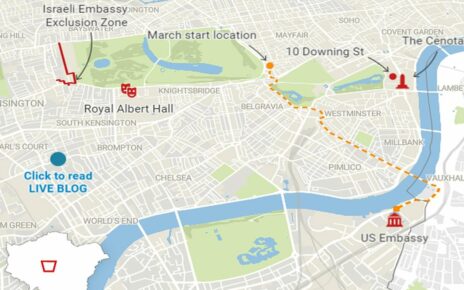THE clocks going forward may mean one less precious hour in bed but it does mean we get those beloved longer summer evenings.
The tradition of changing the clocks happens twice a year in the UK and has been an official concept for over a century.

When do the clocks go forward in 2024?
Clocks go forward in the UK on the last Sunday of March.
This means that in 2024 the clocks will change on Sunday, March 31 – which is also Easter Sunday.
At 1 am, the clocks will go forward one hour, marking the start of British Summer Time (BST).
BST means that the sun will rise earlier and there will be daylight for longer, as the country heads towards the summer solstice.
Read more on BST
 SPRING FORWARD
SPRING FORWARD
How the clocks going forward could affect your work and your pay
 FALL BACK
FALL BACK
Reason why we change our clocks from GMT to British Summer Time
The sun will go down later, setting as late as 9.20pm on the longest day of the year.
The summer solstice has an average 16 hours of daylight, making it the longest day on the calendar.
This will take place on Thursday, June 20, in 2024.
The number of hours of daylight will gradually decrease day by day after the solstice and the UK will then return to Greenwich Mean Time (GMT).
Most read in The Sun
 STRICT EXIT
STRICT EXIT
Strictly shock as favourite is axed & Claudia brands dance-off ‘closest ever’
 ‘WHOLESOME’
‘WHOLESOME’
Steve Cooper reaches out to distraught Forest fan after playing The Last Post
 ‘DEEPLY OFFENSIVE’
‘DEEPLY OFFENSIVE’
Cops sack adviser filmed leading ‘from the river to the sea’ chant
 OVER & OUT
OVER & OUT
Huge ITV2 comedy show axed after 7 series as bosses deem it ‘tired’
The clocks will go back on Sunday, October 27, 2024, at 2am, as the nation will begin heading towards winter.
Why do the clocks go forward?
The main reason for the clocks changing is to make use of Daylight Saving Time.
This allows the UK to save energy, and make use of the precious extra sunlight.
This is particularly useful to Brits given the high cost of living at the moment, as it saves us all some money on electricity bills.
The environment also benefits as we use less electricity.
Do we get extra sleep when the clocks go forward?
Unfortunately, the down side of clocks going forward is that we lose an hour of sleep when the clock moves forward from 1am to 2am.
Once clocks go back again, however, we'll gain the hour back.
What would happen if we didn't put the clocks back?
If the clocks didn't go back the UK would be out of sync with the other countries that observe daylight saving time (DST), including in Europe and North America.
It would also mean that the British public would have to accustom to the already very dark mornings in the winter.
Source: Read Full Article



